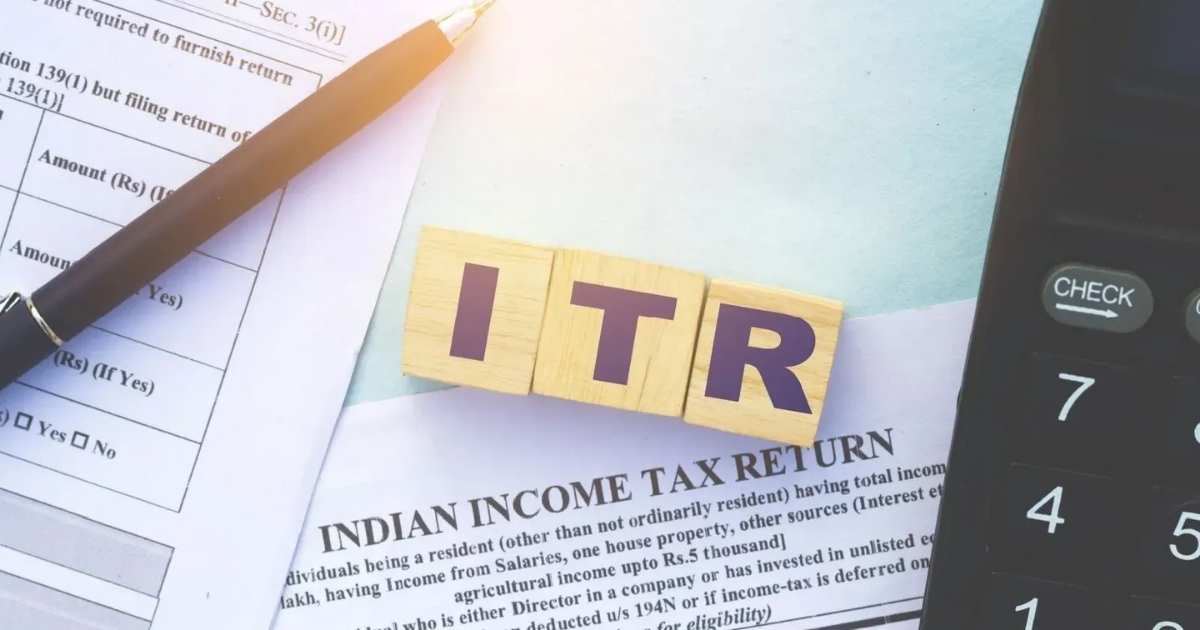If you hold shares, mutual funds, or bonds in your demat account, filing your Income Tax Return (ITR) requires special attention. With the ITR filing deadline extended to September 15, 2025, here’s everything demat account holders need to know to stay compliant and avoid penalties.
Table of Contents
Understanding Your Tax Obligations
Holding a demat account doesn’t make you liable for taxes, but any income generated through it certainly does. Whether it’s capital gains from selling stocks or dividend income from your investments, the Income Tax Department expects you to report everything accurately.
Read More: ITR Filing AY 2025-26: Complete Form 16 Download Guide & Key Deadlines You Must Know
Top 10 Essential Points for Demat Account Holders
1. Choose the Correct ITR Form
Your choice of ITR form depends on your income sources:
- ITR-1: Only salary income with no capital gains and single property
- ITR-2: Capital gains income or multiple properties
- ITR-3: Trading as business income
2. Validate Your Demat Account on IT Portal
Log into the Income Tax e-filing portal and validate your demat account. This integrates your investment data directly into your tax profile, making filing easier and more accurate.
3. Understand Capital Gains Taxation
Short-Term Capital Gains (STCG): Assets held for less than 12 months are taxed at 20% as per Finance Act 2024
Long-Term Capital Gains (LTCG): Assets held for more than 12 months are taxed at 12.5% on gains exceeding Rs 1.25 lakh
Read More: MPESB Excise Constable Exam Date 2025 Out! 253 Posts – Check New Schedule
4. Report All Dividend Income
Dividend income is now taxable as per your income slab rates. Companies deduct 10% TDS on dividends exceeding Rs 5,000 if PAN is provided, 20% without PAN.
5. Don’t Ignore Your Form 26AS
Once your demat account KYC is completed (linked with PAN and Aadhaar), all transactions become visible to the Income Tax Department through Form 26AS. Cross-verify all details before filing.
6. Collect Necessary Documentation
Gather these essential documents:
- Account statements from your broker/bank
- Transaction reports from NSDL or CDSL
- Dividend certificates
- Contract notes for all trades
Read More: Complete Ganesh Chaturthi Puja Rituals Guide 2025 – Easy Home Celebration Steps
7. Report Even Small Gains
“Even small gains should be reported. Failing to report can lead to AIS mismatches, notices, and penalties.” – Tax experts warn
8. Declare Losses for Future Benefits
Report capital losses even if your total income is below taxable limits. This allows you to carry forward losses for up to 8 years and offset them against future gains.
9. Account for Corporate Actions
Stock splits, bonus issues, and rights issues don’t immediately trigger tax but affect your cost of acquisition. Calculate these correctly to avoid inflated capital gains tax.
Read More: Vaishno Devi Flash Floods: 5 Killed, 14 Injured in J&K Landslide – Latest Updates 2025
10. Handle Multiple Demat Accounts Carefully
If you have multiple demat accounts, ensure you report transactions from all accounts. The tax department receives data directly from all brokers and depositories.
Key Dates to Remember
- ITR Filing Deadline: September 15, 2025 (for non-audit cases)
- Belated Return: Can be filed till December 31, 2025
- Late Filing Penalty: Rs 1,000-5,000 depending on income
Read More: HDFC Bank Makes History: First Ever 1:1 Bonus Issue Doubles Your Shares!
Frequently Asked Questions
Q: Do I need to file ITR if I only hold shares without selling?
A: No, merely holding shares doesn’t require ITR filing. However, if you receive taxable dividends, filing may be necessary.
Q: What happens if I miss the September 15 deadline?
A: You can file a belated return till December 31, 2025, but will face penalties of Rs 1,000-5,000 plus interest on unpaid taxes.
Q: Can I use ITR-1 if I have capital gains?
A: You can use ITR-1 for LTCG under Section 112A up to Rs 1.25 lakh, otherwise use ITR-2.
Filing your ITR as a demat account holder requires careful attention to detail, but following these guidelines will ensure compliance and help you avoid costly penalties. Remember, accuracy in reporting is not just about following rules – it’s about securing your financial future.











